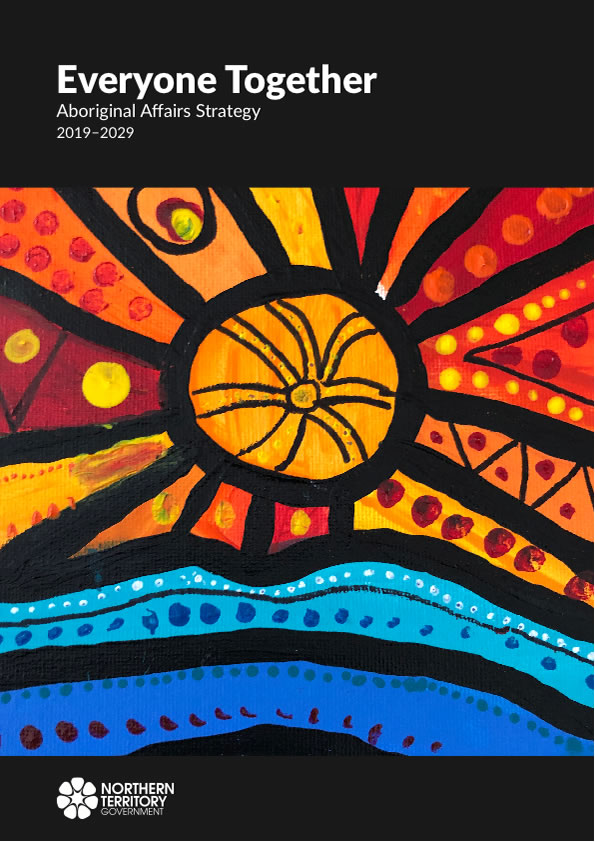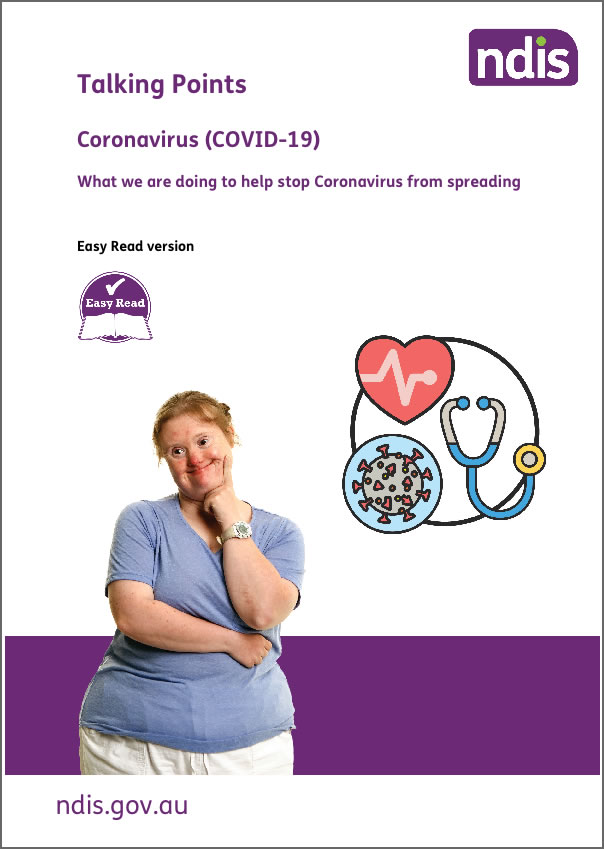March 2020
In this issue
1. From The President
2. ACAL 2020 Conference on Canberra – call for papers
- Do you have some good practical ideas or research to share?
3. Professional development
- ACAL webinar ‘A VOCEDplus primer: focus on adult literacy and numeracy’
- disABILITY AWAREness Professional development
4. ‘… being gay was fine, the fact I couldn’t read was so uncomfortable for me’ NRL legend.
5. Literacy and Numeracy Studies Vol 27 No 1 (2019) available
6. National Training Awards
7. Northern Territory Update
- Direct response to ACAL
- NT launch
8. Have you read this? Literacy-as-event:
9. Health information on COVID-19
10.  Any way – it’s renewal time
Any way – it’s renewal time
1. From The President
 This month we welcomed the news that the NT Govt have included adult literacy in the current release of their Aboriginal Affairs Strategy 2019-2029. In fact, they have gone so far as to state that they will develop an English language, literacy and numeracy policy position to improve Aboriginal adult literacy in the Northern Territory. Policy positions are useful when funding is attached and we look forward to seeing the investment in adult literacy programs promised in the same document. Perhaps this will go some way to compensating for the fundamental LLN courses recently cut by Charles Darwin University.
This month we welcomed the news that the NT Govt have included adult literacy in the current release of their Aboriginal Affairs Strategy 2019-2029. In fact, they have gone so far as to state that they will develop an English language, literacy and numeracy policy position to improve Aboriginal adult literacy in the Northern Territory. Policy positions are useful when funding is attached and we look forward to seeing the investment in adult literacy programs promised in the same document. Perhaps this will go some way to compensating for the fundamental LLN courses recently cut by Charles Darwin University.
Our last national adult literacy policy resulted in some small achievements but was not accompanied by sufficient funding for the multiple literacy needs of Australian adults. The narrow focus on job seekers as the main recipients of adult literacy funding denies the place of literacy in our lives, our communities and our society. Does teaching someone to fill in a workplace form really equip them to critically read mass media news, weigh up arguments, and make sound decisions? If you can read a safety data sheet, can you select an appropriate book and read it with the expression and joy that engages a child as a life-long reader? These life skills that make the human experience rich, and that truly break socio-economic cycles of disadvantage, are just as worthy of funding as reducing the unemployment statistic.
Jo Medlin
ACAL President
2. ACAL 2020 Conference on Canberra – call for papers
Do you have some good practical ideas or research to share?
ACAL invites submissions of abstracts for consideration for inclusion in the 2020 ACAL conference programme. This year ACAL is inviting proposals for presentations in two categories
- The usual type of presentations, which may be a workshop, activity or non-refereed paper presentations, and
- Peer reviewed academic paper – additional requirements apply.
3. Professional development
 ACAL webinar ‘A VOCEDplus primer: focus on adult literacy and numeracy’
ACAL webinar ‘A VOCEDplus primer: focus on adult literacy and numeracy’
Wednesday 25 March, 2020 @ 12:30 PM – 1:15 PM ACDT where it’s being hosted (1:00 PM AEDT but check local times)
This 45 minute ‘invitation only’ webinar will focus on the aspects of VOCEDplus that will support those working in the field of adult literacy/numeracy/foundation skills.
VOCEDplus is NCVER’s free international research database for tertiary education, with extensive coverage of Australian material and a wide range of international information. VOCEDplus also features a variety of ‘value-add’ resources that package information to enable our users to target and access relevant material quickly.
This ACAL webinar will not only cover the most relevant of these resources for our ACAL audience but also demonstrate how to get the best from a VOCEDplus search.
Register for the free webinar.
disABILITY AWAREness Professional development
A series of online training opportunities has been developed by the National Disability Co-ordination Officer (NDCO) Program and Australian Disability Clearinghouse on Education and Training (ADCET) for VET Educators and Staff.
The first program, VET Staff Supporting Students with Disability, is designed specifically for staff who work in the VET Sector and focuses on promoting awareness about the rights of students with disability, the needs and requirements of students, and responsibilities of registered training organisations. This takes about 40 min to complete.
The second program, VET Educators Supporting Students with Disability is designed specifically for VET Educators and focuses on promoting a range of practices such as universal design for learning and reasonable adjustments, to support the development and implementation of inclusive delivery and assessment strategies, responsive to the needs and requirements of students with disability. This takes about 90 min to complete.
4. ‘… being gay was fine, the fact I couldn’t read was so uncomfortable for me’ NRL legend.
 Ian Roberts, the first (and only) professional NRL player to have played as an openly gay man, discusses the moment he realised he had to be honest with himself about his sexuality.
Ian Roberts, the first (and only) professional NRL player to have played as an openly gay man, discusses the moment he realised he had to be honest with himself about his sexuality.
He also talks about ‘coming out’ in the NRL, sustaining a brain injury from concussion and his post-NRL career as an actor and learning to read and write at 37.
‘The Year that Made Me‘ part of Sunday Extra program on ABC Radio National, broadcast Sunday March 22, 2020.
5. Literacy and Numeracy Studies Vol 27 No 1 (2019) available
Literacy and Numeracy Studies: An international journal in the education and training of adults is an international refereed journal which promotes research, scholarship and critical analysis of policy and practice concerning the many and complex ways that adult literacy and numeracy are implicated in the lives of young people and adults.
This publication features articles by Keiko Yasukawa, Anne Alkema, Ralf St Clair, Russell Daylight & John O’Carroll, and Jeff Evans,
6. National Training Awards
 Nominations for direct entry categories are open for the 2020 Australian Training Awards open. Applications close 31 May 2020.
Nominations for direct entry categories are open for the 2020 Australian Training Awards open. Applications close 31 May 2020.
The Excellence in Language, Literacy and Numeracy (LLN) Practice Award recognises innovation and excellence by an individual involved in improving LLN skills in an educational, community or workplace context.
Applications can be made by relevant individuals or organisations (eg colleagues, professional bodies, students, employers, industry or community representatives), or through self-nomination.
7. Northern Territory Update
Direct response to ACAL
Following a series of letters and responses to ministers in the NT government, ACAL has been contacted by the Director, Strategy and VET Data, from the Department of Trade, Business and Innovation, Northern Territory Government of Australia.
Acknowledging that the letters raise a wide range of issues that cross many policy areas along with Northern Territory Government and Australian Government programs and portfolios, the Director is happy to discuss with anyone at the ACAL end as needed and cover off as many of the issues as he can.
We look forward to learning more and will bring you an update when available.
NT launch
 This month, Minister for Aboriginal Affairs, Selena Uibo, launched the Territory Labor Government’s new 10-year Aboriginal Affairs Strategy, Everyone Together: Aboriginal Affairs Strategy 2019-2029.
This month, Minister for Aboriginal Affairs, Selena Uibo, launched the Territory Labor Government’s new 10-year Aboriginal Affairs Strategy, Everyone Together: Aboriginal Affairs Strategy 2019-2029.
Of note, are
- Measure 7.6: develop an English language, literacy and numeracy policy position to improve Aboriginal adult literacy in the Northern Territory
- Measure 10.4 – increase the proportion of Aboriginal Territorians commencing an apprenticeship, traineeship or cadetship
- Measure 10.5 – increase the proportion of Aboriginal Territorians training in higher-level vocational education and training qualifications (e.g. certificate III and above) will be supported by an investment in adult literacy programs.
Everyone Together: Aboriginal Affairs Strategy 2019-2029
8. Have you read this?
Literacy-as-event: accounting for relationality in literacy research by Cathy Burnett and Guy Merchant
Research in New Literacy Studies has demonstrated how literacy consists of multiple socially and culturally situated practices illuminated through a focus on literacy events. Recently, this sociocultural perspective has been complemented by relational thinking that views literacy as an ongoing reassembling of the human and more-than-human.
This conceptual article proposes that, in exploring how relational thinking might be deployed in literacy research and practice, it is helpful to re-visit conceptualisations of literacy events. Specifically it proposes the notion of ‘literacy-as-event’ as a heuristic for thinking with the fluid and elusive nature of meaning-making, elaborating on three propositions: 1. event is generated as people and things come into relation; 2. what happens always exceeds what can be conceived and perceived; 3. implicit in the event are multiple potentialities.
Approaching literacy research through engaging with literacy-as-event promotes an expansive, reflective, and imaginative engagement with literacy practices that aligns with relational thinking.
9. Health information on COVID-19
 If you are sharing information sheets with your adult learners, basic principles to look for include:
If you are sharing information sheets with your adult learners, basic principles to look for include:
- Simple explanations using plain English
- Useful visuals that convey meaning
- Text that is not crowded
The NDIS has created an easy to read information sheet. A learner activity might be to read through the document and think about how it could be changed so it’s even easier for others to read. Example:
- people instead of participants (or you given who the audience is)
- others instead of partner organisations
- extend instead of automatically extend
If you find other useful texts please share them on our FaceBook page.
10. And of course it’s renewal time
 Thanks to those who have responded promptly to our request last week.
Thanks to those who have responded promptly to our request last week.
Then you can wait for an invoice or pay immediately using your credit card and PayPal.

